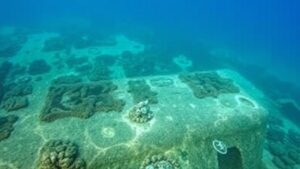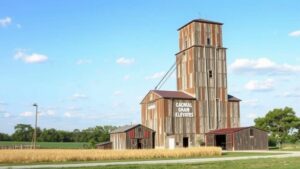How to Access University Archives for Geological and Historical Data
How to Access University Archives for Geological and Historical Data
University archives are a vital resource for researchers seeking geological and historical data. These repositories house a wealth of information, including primary source documents, maps, field notes, and institutional records that can illuminate various aspects of geological history and human interaction with the Earth. This article outlines the steps for effectively accessing these archives, highlights important resources, and provides guidance on navigating the research process.
Understanding University Archives
University archives are collections of records created by universities and their affiliates, often preserved for their historical and administrative value. Archives may include:
- Institutional records
- Field research data
- Scholarly articles and theses
- Personal papers of faculty and alumni
- Photographs, maps, and geological specimens
Accessing these repositories can provide invaluable insights into geological phenomena and historical contexts significant to academic research. Examples include the University of California, Berkeleys Bancroft Library, which houses extensive materials on Californias geological history, and the University of Oxford’s Bodleian Library, known for its historical maps and geological texts.
Steps to Access University Archives
Accessing university archives typically involves several key steps:
- Identify Relevant Archives: Determine which universities may have the geological or historical data needed for your research. Institutional quality and specialization vary, so it’s crucial to identify the right resources.
- Consult the Online Catalogs: Most university archives provide online access to catalogues that list their holdings. Search these databases using specific keywords related to your research.
- Contact Archivists: Reach out to university archivists for guidance on accessing specific materials. Archivists are experts in their collections and can help identify relevant documents.
- Schedule a Visit: Many archives require appointments, especially for special collections. Ensure you know the visiting hours and protocols.
- Review Access Policies: Familiarize yourself with any rules regarding the use of materials, including reproduction policies and handling protocols.
Utilizing Resources Effectively
Once you have gained access to the archives, utilizing the resources effectively is essential for compiling data efficiently. Here are some tips:
- Take Detailed Notes: Document the location of each item reviewed and relevant data points. This can streamline the process of integrating information into your research.
- Photographic Documentation: Most archives allow photography of materials. Use this for quick reference, but check the policies regarding reproduction first.
- Ask Questions: Do not hesitate to ask the staff for help. can provide context and additional information about obscure items.
Case Study: The Geological Collections at the University of Southern California
The geological collections at the University of Southern California (USC) serve as an illustrative example of how to access and utilize university archives. USCs collections include thousands of rock, mineral, and fossil specimens, alongside historical documents relating to Californias geological development.
In 2021, researchers conducted a study on seismic activity in the Los Angeles region, which integrated data from USCs geological archives. The archives provided seismic maps dating back to the early 1900s, significantly contributing to the data set necessary for analysis. Findings were published in the Journal of Geological Sciences, showcasing the historical datas importance in contemporary geological research.
Conclusion
Accessing university archives for geological and historical data is a systematic process that, when approached thoughtfully, can significantly enrich research outcomes. By understanding the lay of the land, preparing adequately, and engaging with archivists, researchers can unlock the potential of these invaluable resources.
For actionable takeaways:
- Research specific university archives relevant to your field.
- Create a list of keywords for searching archives online.
- Establish contact with archivists well before your visit.
With the rising importance of interdisciplinary studies, the integration of geological and historical data can further illuminate our understanding of past and present challenges facing our planet.


